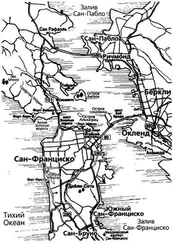Smith stepped swiftly forward and, without altering his grip on his gun, lifted the barrel sharply upwards and drove the butt of the Schmeisser into Schaffer’s stomach. Schaffer grunted in agony, doubled forward with both hands clutched over his midriff, then, seconds later, obviously in great pain, began to straighten slowly. Glaring at Smith, the dark eyes mad in his face, he slipped the shoulder strap and the Schmeisser fell to the carpet.
‘Sit there.’ With the muzzle of his gun Smith gestured to a chair half-way between Rosemeyer’s and the couch where the three men were sitting.
Schaffer said slowly, painfully: ‘You goddamned lousy, dirty, double-crossing–’
‘That’s what they all say. You’re not even original.’ The contempt in Smith’s voice gave way to menace. ‘That chair, Schaffer.’
Schaffer lowered himself with difficulty into his chair, rubbed his solar plexus and said, ‘You –. If I live to be a hundred–’
‘If you live to be a hundred you’ll do nothing,’ Smith said contemptuously. ‘In your own idiom, Schaffer, you’re a punk and a pretty second-rate one at that.’ He settled himself comfortably in a chair beside Colonel Kramer. ‘A simple-minded American,’ he explained carelessly. ‘Had him along for local colour.’
‘I see,’ Kramer said. It was obvious that he did not see. He went on uncertainly: ‘If we might have an explanation–’
Smith waved him negligently to silence.
‘All in good time, my dear Kramer, all in good time. As I was saying, my dear Anne-Marie–’
‘How did you know her name was Anne-Marie?’ Kramer asked sharply.
Smith smiled enigmatically, ignored him completely, and continued: ‘As I was saying, scopolamine is a waste of time. All scopolamine will do, as you’re all aware, is to reveal the truth about our friend here, which is that he is not Lieutenant General George Carnaby, Chief Coordinator of Planning for the Second Front, but a certain Cartwright Jones, an American actor being paid precisely twenty-five thousand dollars to impersonate General Carnaby.’ He looked over to Jones and bowed. ‘My congratulations, Mr Jones. A very creditable performance. Pity you’ll have to spend the rest of the war in a concentration camp.’
Kramer and Rosemeyer were on their feet, the others leaning far forward on the couch, an almost exactly identical expression of disbelief showing in every face. If Cartwright Jones had been earth’s first visitor from outer space he couldn’t possibly have been the object of more incredulous consternation.
‘Well, well, well,’ Smith said with interest. ‘Surprise, surprise, surprise.’ He tapped Kramer on the arm and gestured in the direction of Carraciola, Thomas and Christiansen. ‘Odd, wouldn’t you say, Kramer? They seem just as astonished as you are?’
‘Is this true?’ Rosemeyer demanded hoarsely of Jones. ‘What he says? Do you deny–’
In a voice that was no more than a whisper, Jones said: ‘How – how in God’s name – who are you, sir?’
‘A stranger in the night.’ Smith waved a hand. ‘Dropped in in the passing, you might say. Maybe the Allies will let you have that twenty-five thousand after the war. I wouldn’t bank on it though. If international law allows you to shoot a captured enemy soldier dressed as a civilian, maybe the opposite holds good too.’ Smith stretched and politely patted a yawn to extinction. ‘And now, Anne-Marie, if I could – with your permission, my dear Kramer – have a glass of that excellent Napoleon. Clinging to the roofs of cable-cars works the devil with my circulation.’
The girl hesitated, looked at Kramer and Rosemeyer, found neither encouragement nor discouragement, shrugged, poured a glass and handed it to Smith, who sniffed the bouquet approvingly, drank a little and bowed again to Jones.
‘My congratulations, sir. You are a connoisseur.’ He sipped again, turned to Kramer and said sadly: ‘To think you have been wasting such excellent liquor on enemies of the Third Reich.’
‘Don’t listen to him, Colonel Kramer, don’t listen to him!’ Carraciola shouted wildly. ‘It’s a bluff! He’s just trying–’
Smith lined up his gun on Carraciola’s chest and said softly: ‘Keep quiet or I’ll make you quiet, you damned traitor. You’ll have your chance – and we’ll see who’s bluffing.’ He lowered his gun to his knees and went on tiredly: ‘Colonel Kramer, I don’t fancy talking and having to keep a gun on this unlovely trio all the time. Have you a guard you can trust? A man who won’t talk afterwards, I mean?’
He sat back in his chair, sipped his brandy and ignored the malevolent stares from his four erstwhile colleagues. Kramer looked at him for a very long moment, then nodded thoughtfully and reached for a phone.
The armoury – now converted into a Kaffeestube – of the Schloss Adler was very much in keeping with the remainder of the castle, something out of a medieval dream or nightmare, according to how individual tastes and inclinations lay. It was a large, darkly-panelled, stone-flagged room with enormous adze-cut smoke-blackened beams and walls behung with ancient and rusty suits of armour, ancient and rusty weapons of all kinds and scores of armorial bearings, some of which could have been genuine. Three-sided half booths lined the walls and half-a-dozen slab-topped monastery refectory tables, flanked by massive oak benches, paralleled the shorter axis of the room. The oil lamps, suspended by iron chains from the ceiling, were turned low, lending the atmosphere in the armoury an air of intimacy or brooding menace, according to one’s original mood on entering. There was no doubt in Mary’s mind as to its effect upon her. Her gaze followed half-a-dozen heavily armed and jack-booted men who were just leaving the armoury, then came back reluctantly to the man sitting close beside her in the corner booth.
‘Well, what did I tell you?’ von Brauchitsch said expansively. ‘Coffee to match the surroundings!’
Coffee to match the surroundings, Mary thought, would have tasted of hemlock. She said: ‘What did those men want? They seemed to be looking for someone.’
‘Forget them. Concentrate on von Brauchitsch.’
‘But you spoke to them. What did they want ?’
‘They say there are spies in the castle!’ Von Brauchitsch threw his head back, laughed, and spread his hands palms up. ‘Imagine! Spies in the Schloss Adler! The Gestapo HQ! They must have flown in on their broomsticks. The military commandant is an old woman. He has spies in about once a week. Now what was I saying about Düsseldorf?’ He broke off, glancing at her empty coffee cup. ‘My apologies, my dear Fräulein. Come, more coffee.’
‘No, really. I must go.’
Von Brauchitsch laughed again and put his hand on hers.
‘Go where? There is nowhere to go inside the Schloss Adler. Nonsense, nonsense.’ He turned in his seat and called: ‘Fräulein! Two more coffees. And with Schnapps, this time.’
While he was ordering, Mary glanced quickly at her watch and a momentary expression of desperation crossed her face, but by the time von Brauchitsch turned back she was smiling sweetly at him. She said: ‘You were saying about Düsseldorf–’
The company in the gold drawing-room had now been increased by one, a tall, cold-faced and hardeyed sergeant who held a carbine cradled in a pair of strong and very capable-looking hands. He was standing behind the couch on which Carraciola, Thomas and Christiansen were seated, and he was giving them his entire attention, apart from a frequent sideways glance at Schaffer. He had about him a reassuring air of competence.
‘A very much more civilized arrangement,’ Smith said approvingly. He rose, leaving his Schmeisser lying on the floor, crossed to the brandy decanter on the sideboard, poured himself another drink and made his way back to the fireplace where he placed his glass on the mantelpiece.
Читать дальше
Конец ознакомительного отрывка
Купить книгу










